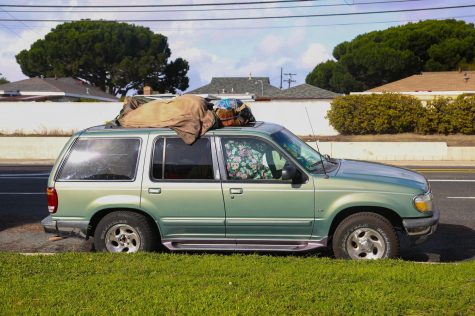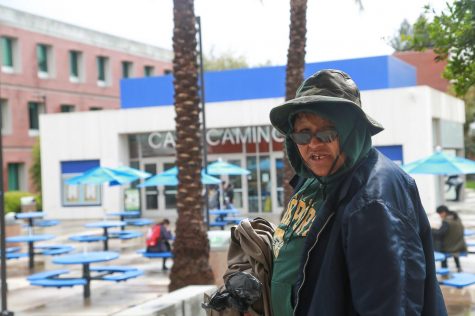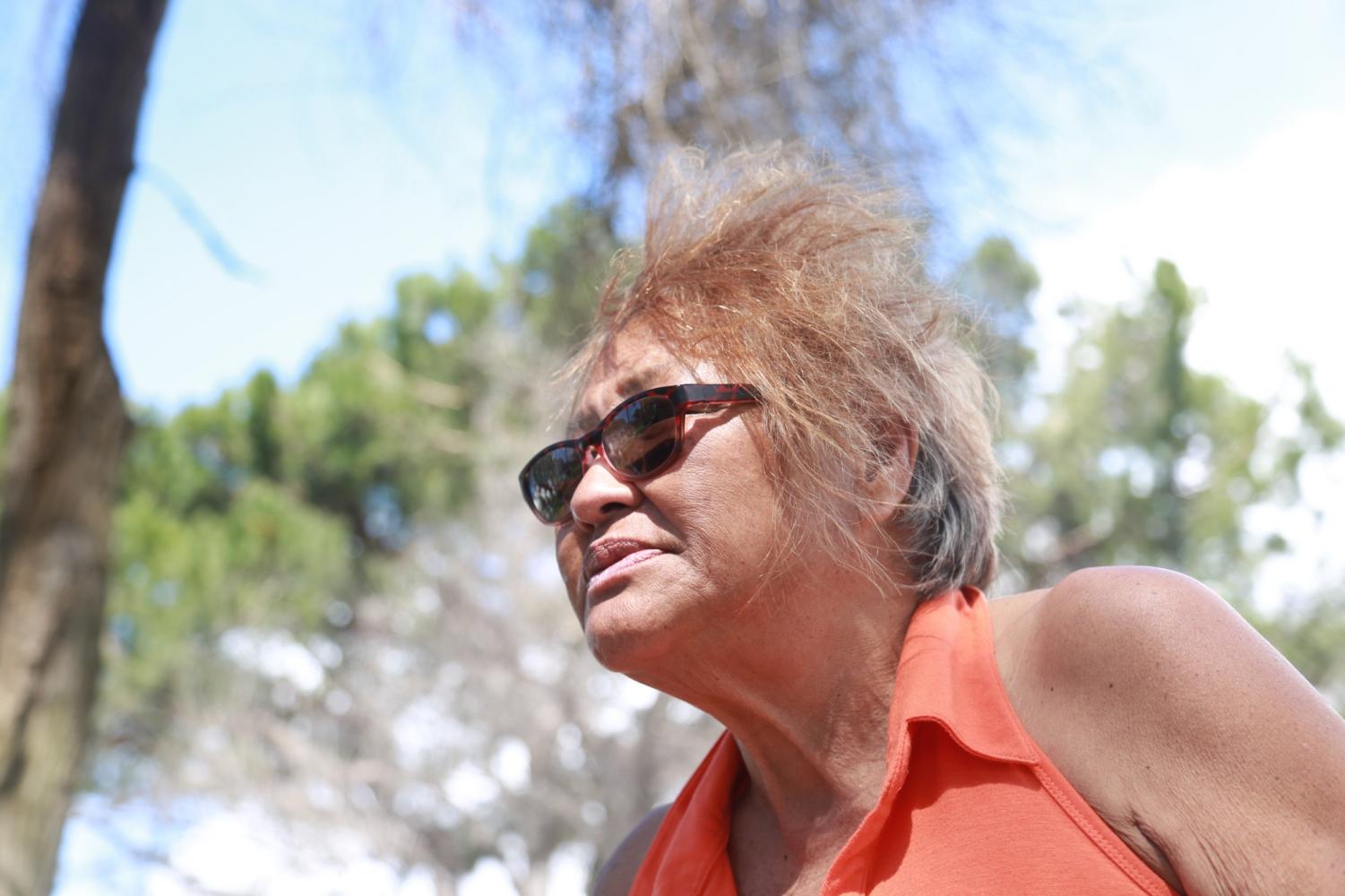New bill looks to allow overnight on-campus parking for homeless students
March 27, 2019
Doing homework at night is hard for her.
If her flashlight batteries are dead, she relies on streetlights to see, but it also gets cold and damp outside as her hands cramp up while attempting to complete assignments.
Ink sometimes bleeds and the letters blur—B’s begin to look like 8’s and M’s begin to look like W’s, she said.
But most grueling was when homeless El Camino College student Roxann Toshiko Tomiyasu used to sleep in the Masao W. Satow Library parking lot in Gardena and run into drunkards and gang members, she said.
“You’ve got gangs out here saying, ‘Oh, we don’t want homeless in this area—we’re just going to beat them up,’” Tomiyasu said. “We have drunks and all these people running around.”
Her refuge from the outside is a used Ford Explorer her daughter purchased for her in 2017. Although the vehicle functioned for about a year and a half, it broke down in October 2018 and has been parked on Manhattan Beach Boulevard next to EC ever since.

Although her car does not work and serves as a means of storage for now, Tomiyasu is hopeful she’ll get it fixed one day. She studies automotive technology at EC and is learning to become an automotive mechanic.
But when she heard of a new bill introduced in the California State Assembly, which would mandate community colleges to allow homeless college students the ability to park on campus parking lots overnight, Tomiyasu said she thought it was a great idea.
“It would make me more stabilized, you know, founded,” Tomiyasu said. “It’ll make me safer mentally, no strain, and that’s a lot.”
The new bill, formally known as AB 302, was introduced to the Assembly floor by Assemblyman Marc Berman (D-Palo Alto) on Jan. 29 and is currently awaiting approval from the state Assembly’s Higher Education Committee on Tuesday, April 2.
If passed through the legislature, the bill can affect over 13 percent of the EC student population as over 190 students are homeless, according to the ECC Student Campus Climate Survey 2018 report.
“I think there are many students who find housing insecurity to be a tremendous challenge,” EC President and Superintendent Dena Maloney said. “Especially when you’re trying to go to school, college is hard, there’s are a lot of demands in terms of just being successful in college itself.”
Maloney said it is difficult to say whether AB 302 can be beneficial to students because the bill may be changed throughout the process of getting approved and safety and security are a top priority.
“The fact of the matter is that at night we may not have as many campus safety officers available, those sorts of things,” Maloney said. “So I can’t say at this point that’s the best option for students because I want to make sure they’re safe, they’re secure.”

She also said her concern lies with students sleeping in their cars regardless of where their car is parked because that situation is probably not a top preference.
“I think we’ve got to look beyond that solution, which may be a solution that will come about, especially if this law passes, but look for other solutions that help students find a safer, more secure place to be than sleeping in their car at night,” Maloney said.
Currently, students are allowed to park overnight on-campus parking facilities as long as they pay their parking permit fee, EC Chief of Police Michael Trevis said.
Trevis added he could recall no more than one instance within the last two years that a student, who had a semester parking permit, parked overnight in a campus parking lot.
While the option is available for students to park overnight, those in homeless situations may not be able to spend money on parking fees.
Maloney also said in comparison with other community colleges in Southern California, EC has a smaller semester parking permit fee.
But even if her car still worked, Tomiyasu said she is unable to park on campus because she cannot afford a $35 expense on parking.

